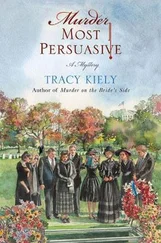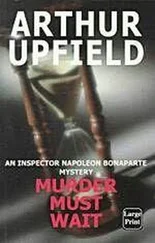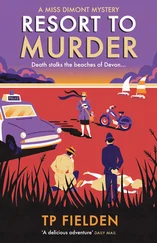“Couldn’t say, exactly.”
“Three times? Twice? Perhaps no more than once. Only it made a great impression on you, as you were a child.”
“Anyhow, when we got back, we’d all have black pudding, and I’m not exaggerating when I tell you I’ve never had anything like it since. I don’t know what my mother used to put in them, but her boudins were quite different from anyone else’s. My wife’s tried, but it wasn’t the same thing, though she had the exact recipe from my eldest sister—at least, my sister swore it was.”
He walked over to one of the huge, uncurtained windows, through which was nothing but blackness, and scratched the pane with a fingernail.
“Hallo, there’s frost forming. That again reminds me of when I was little. The water used to freeze in our rooms and we’d have to break the ice in the morning when we wanted to wash.”
“People didn’t have central heating in those days.” answered Lecœur coolly.
There were three of them on night duty. Les nuiteux , they were called. They had been in that vast room since eleven o’clock, and now, at six on that Christmas morning, all three were looking a bit jaded. Three or four empty bottles were lying about, with the remains of the sandwiches they had brought with them.
A lamp no bigger than an aspirin tablet lit up on one of the walls. Its position told Lecœur at once where the call came from.
“Thirteenth Arrondissement, Croulebarbe,” he murmured, replacing his earphones. He seized a plug and pushed it into a hole.
“Croulebarbe? Your car’s been called out—what for?”
“A call from the Boulevard Masséna. Two drunks fighting.”
Lecœur carefully made a little cross in one of the columns of his notebook.
“How are you getting on down your way?”
“There are only four of us here. Two are playing dominoes.”
“Had any boudin tonight?”
“No. Why?”
“Never mind. I must ring off now. There’s a call from the Sixteenth.”
A gigantic map of Paris was drawn on the wall in front of him and on it each police station was represented by a little lamp. As soon as anything happened anywhere, a lamp would light up and Lecœur would plug into the appropriate socket.
“Chaillot? Hallo! Your car’s out?”
In front of each police station throughout the twenty arrondissements of Paris, one or more cars stood waiting, ready to dash off the moment an alarm was raised.
“What with?”
“Veronal.”
That would be a woman. It was the third suicide that night, the second in the smart district of Passy.
Another little cross was entered in the appropriate column of Lecœur’s notebook. Mambret, the third member of the watch, was sitting at a desk filling out forms.
“Hallo! Odéon? What’s going on? Oh, a car stolen.”
That was for Mambret, who took down the particulars, then phoned them through to Piedbœuf in the room above. Piedbœuf, the teleprinter operator, had such a resounding voice that the others could hear it through the ceiling. This was the forty-eighth car whose details he had circulated that night.
An ordinary night, in fact—for them. Not so for the world outside. For this was the great night, la nuit de Noël . Not only was there the Midnight Mass, but all the theaters and cinemas were crammed, and at the big stores, which stayed open till twelve, a crowd of people jostled each other in a last-minute scramble to finish off their Christmas shopping.
Indoors were family gatherings feasting on roast turkey and perhaps also on boudins made, like the ones Sommer had been talking about, from a secret recipe handed down from mother to daughter.
There were children sleeping restlessly while their parents crept about playing the part of Santa Claus. arranging the presents they would find on waking.
At the restaurants and cabarets every table had been booked at least a week in advance. In the Salvation Army barge on the Seine, tramps and paupers queued up for an extra special.
Sommer had a wife and five children. Piedbœuf, the teleprinter operator upstairs, was a father of one week’s standing. Without the frost on the window-panes, they wouldn’t have known it was freezing outside. In that vast, dingy room they were in a world apart, surrounded on all sides by the empty offices of the Prefecture de Police, which stood facing the Palais de Justice. It wasn’t till the following day that those offices would once again be teeming with people in search of passport visas, driving licenses, and permits of every description.
In the courtyard below, cars stood waiting for emergency calls, the men of the flying squad dozing on the seats. Nothing, however, had happened that night of sufficient importance to justify their being called out. You could see that from the little crosses in Lecœur’s notebook. He didn’t bother to count them, but he could tell at a glance that there were something like two hundred in the drunks’ column.
No doubt there’d have been a lot more if it hadn’t been that this was a night for indulgence. In most cases the police were able to persuade those who had had too much to go home and keep out of trouble. Those arrested were the ones in whom drink raised the devil, those who smashed windows or molested other people.
Two hundred of that sort—a handful of women among them—were now out of harm’s way, sleeping heavily on the wooden benches in the lockups.
There’d been five knifings. Two near the Porte d’ltalie. Three in the remoter part of Montmartre. not in the Montmartre of the Moulin Rouge and the Lapin Agile but in the Zone, beyond where the Fortifs used to be, whose population included over 100,000 Arabs living in huts made of old packing cases and roofing-felt.
A few children had been lost in the exodus from the churches, but they were soon returned to their anxious parents.
“Hallo! Chaillot? How’s your veronal case getting on?”
She wasn’t dead. Of course not! Few went as far as that. Suicide is all very well as a gesture—indeed, it can be a very effective one. But there’s no need to go and kill yourself!
“Talking of boudin ,” said Mambret, who was smoking an enormous meerschaum pipe, “that reminds me of—”
They were never to know what he was reminded of. There were steps in the corridor, then the handle of the door was turned. All three looked round at once, wondering who could be coming to see them at ten past six in the morning.
“ Salut! ” said the man who entered, throwing his hat down on a chair.
“Whatever brings you here, Janvier?”
It was a detective of the Brigade des Homicides, who walked straight to the stove to warm his hands.
“I got pretty bored sitting all by myself and I thought I might as well come over here. After all, if the killer’s going to do his stuff I’d hear about it quicker here than anywhere.”
He, too, had been on duty all night, but round the corner, in the Police Judiciaire.
“You don’t mind, do you?” he asked, picking up the coffeepot. “There’s a bitter wind blowing.”
It had made his ears red.
“I don’t suppose we’ll hear till eight, probably later,” said Lecœur.
For the last fifteen years, he had spent his nights in that room, sitting at the switchboard, keeping an eye on the big map with the little lamps. He knew half the police in Paris by name, or, at any rate, those who did night duty. Of many he knew even their private affairs, as, when things were quiet, he would have long chats with them over the telephone to pass the time away. “Oh. it’s you, Dumas. How are things at home?”
But though there were many whose voices were familiar, there were hardly any of them he knew by sight.
Читать дальше












